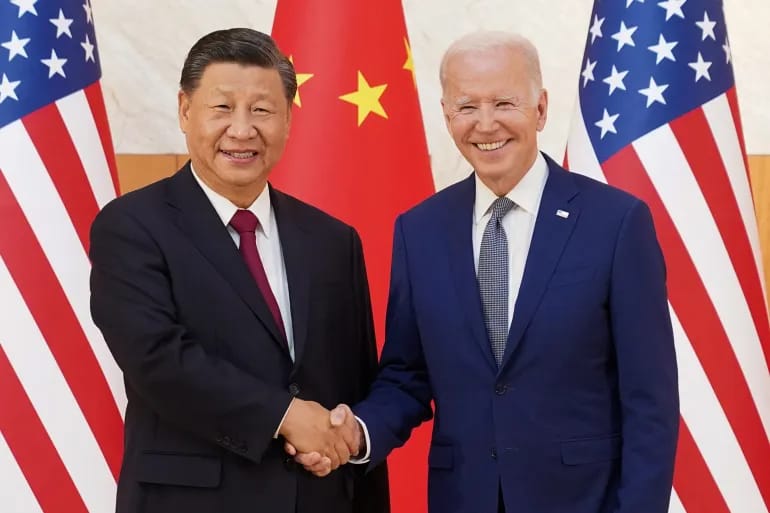US President Joe Biden and Chinese President Xi Jinping are slated to meet on Wednesday in California, marking the first face-to-face encounter between the leaders of the world’s two largest economies in a year. Against the backdrop of heightened tensions and an array of global challenges, the meeting is anticipated to address critical issues ranging from trade and Taiwan to the management of their increasingly strained relations.
Long-Awaited Reunion
The highly-anticipated rendezvous between Biden and Xi, scheduled to take place in the San Francisco Bay Area, comes as the first in-person meeting since the G20 summit in Bali last year. As expectations run high, this engagement is set to play a crucial role in shaping the trajectory of US-China relations and will serve as a platform for discussions on a myriad of pressing issues.
Navigating Choppy Waters
Sources within the Biden administration, speaking on the condition of anonymity, revealed that the leaders are expected to delve into topics such as trade, the Taiwan issue, and the overarching need for maintaining open lines of communication. The delicate balancing act of managing competition while finding common ground on transnational challenges will be in the spotlight, with the stakes escalating against the backdrop of thousands of protesters anticipated to gather in San Francisco during the summit.
Complex Global Dynamics
While the meeting is not anticipated to yield major announcements, it serves as a critical juncture for discussions on various global flashpoints. The leaders are expected to touch upon the Israel-Hamas conflict, Russia’s invasion of Ukraine, and the upcoming presidential election in Taiwan. Amid allegations of China supporting Russia’s economy and disputes in areas such as trade and technology, the dialogue is set to navigate complex geopolitical terrain.
As tensions have sharpened over the past year, notable incidents, including the shooting down of a suspected Chinese spy balloon and Chinese ire over a Taiwan stopover, underscore the delicate nature of the relationship. The intricacies of the US-China dynamic are further highlighted by Beijing’s historically strategic attempts to influence Taiwan’s elections and its neutral stance on the Ukraine war, despite accusations of propping up Russia’s economy.















